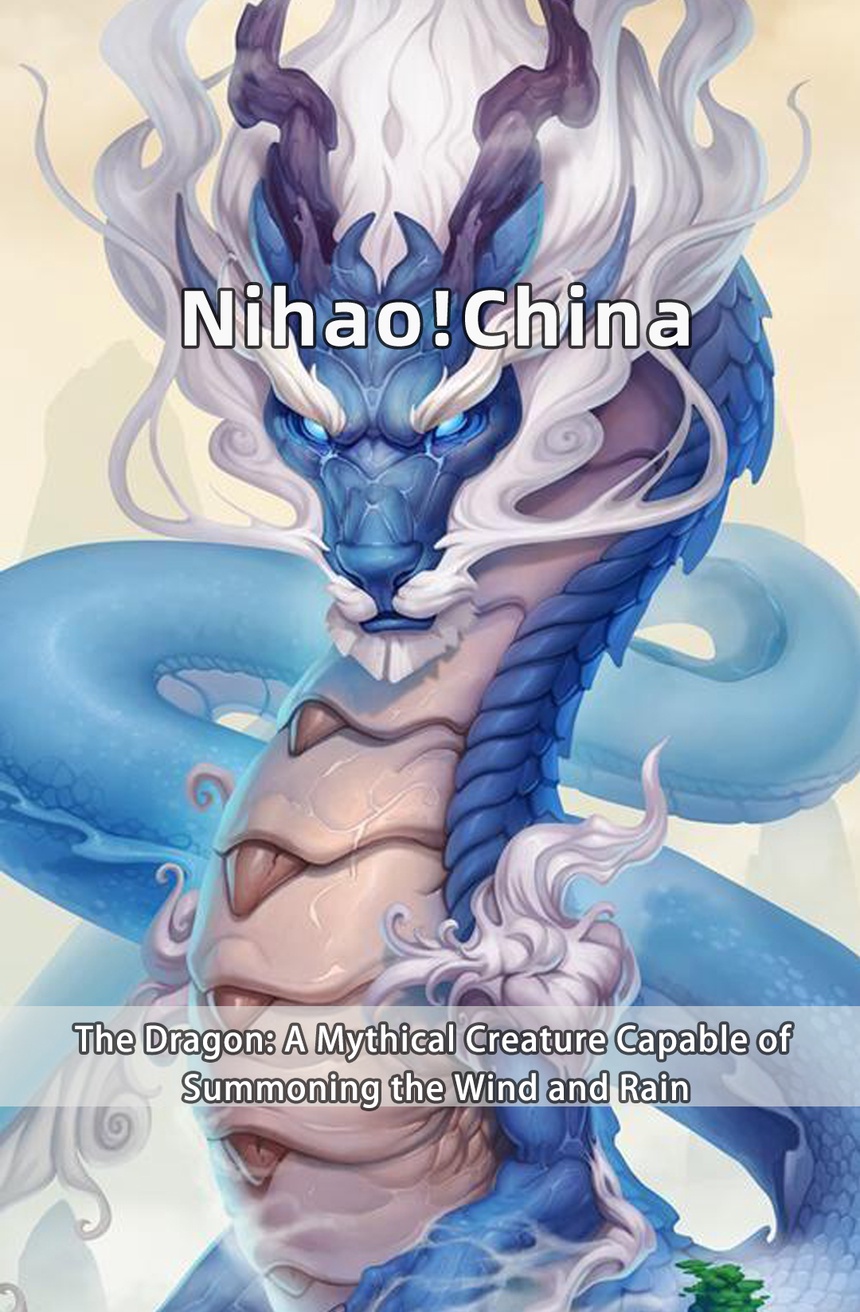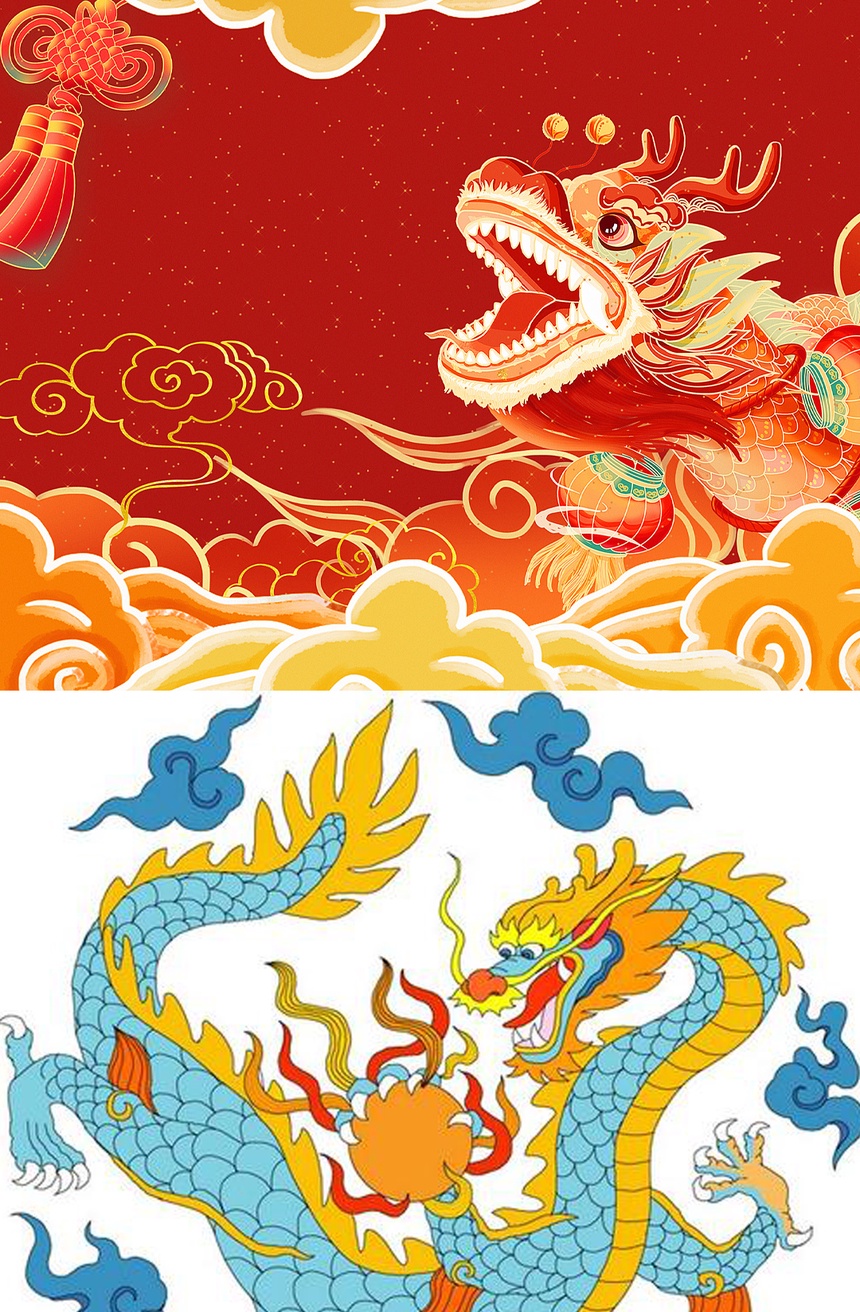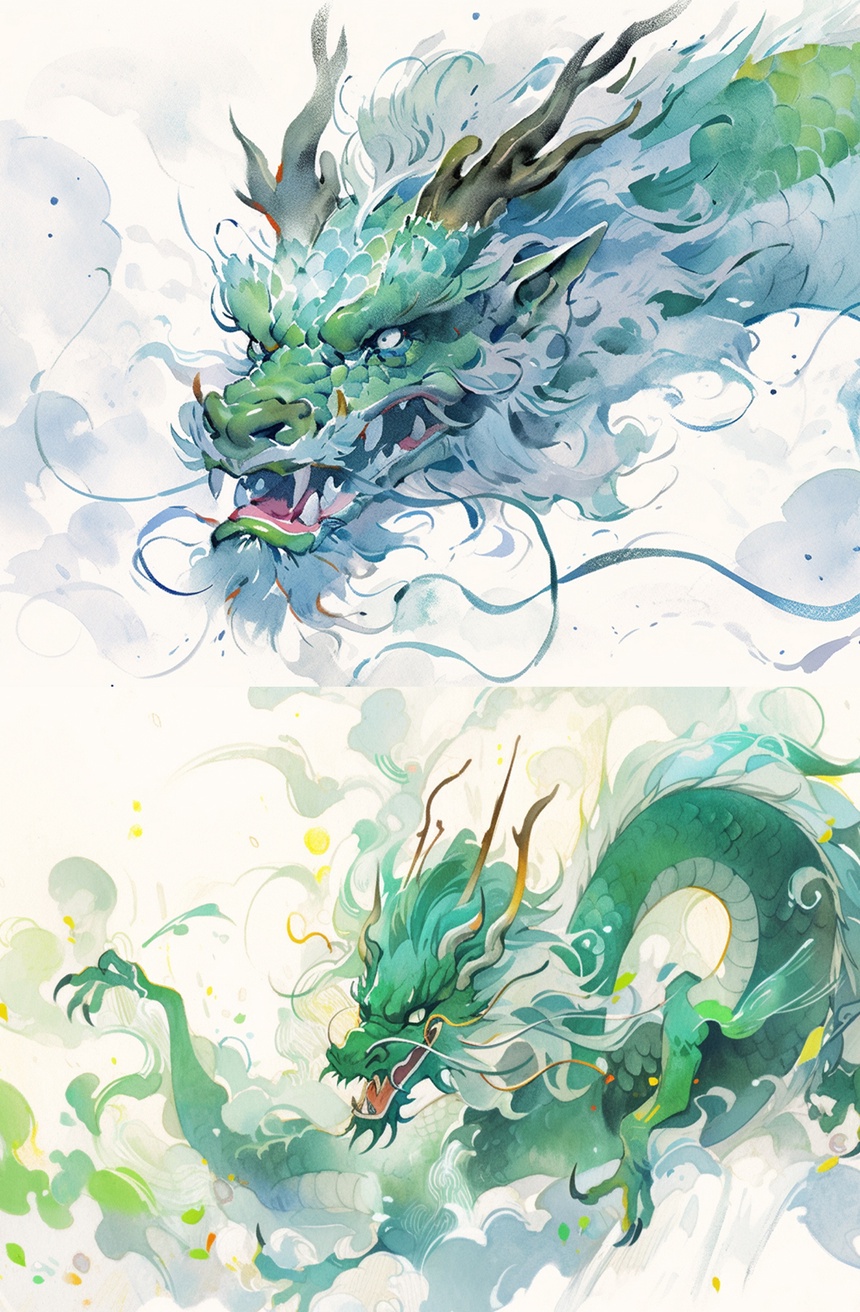 中传云资讯系统
中传云资讯系统【双语】你好!中国 | 十二生肖之呼风唤雨的龙

虽然龙是十二生肖中唯一虚构的动物,但中国人对它有一种特殊的感情,龙的地位之高任何动物也无法与之比较,在中国人心中,它是一种能呼风唤雨,腾云驾雾的神物。人们发挥出无限的想象力,将龙说得神奇而伟大,把各种动物的形象聚于龙一身,有兽的野性、人的悟性、神的灵性,并创造了许多龙的传说,这些传说经过民间的加工和文人的润色后,更加令人神往了。也许,这也是龙成为生肖的文化因素。
Although the dragon is the only fictional animal among the twelve Chinese zodiac signs, Chinese people hold a special feeling for it. The dragon's status is unmatched by any other animal; in the hearts of the Chinese, it is a divine being capable of summoning the wind and rain, soaring through clouds and mists. People have unleashed boundless imagination, portraying the dragon as mysterious and magnificent. They attribute to it the wildness of various animals, the intelligence of humans, and the spirituality of gods, creating many legends. These legends, polished by folk traditions and refined by literati, become even more captivating. Perhaps, this is also a cultural factor behind the dragon becoming part of the zodiac.

龙在古代中国文化中代表着皇权和神权。在中国古代社会,皇帝自称为“真龙天子”,认为自己是龙的化身,掌握着天下的命运。
In ancient Chinese culture, the dragon symbolized imperial and divine authority. In ancient Chinese society, emperors referred to themselves as the "true dragon sons", believing they were incarnations of the dragon, wielding power and controlling the fate of the world.

当然,随着时代的变迁,龙的神秘色彩逐渐淡化,但它依然是中国文化中不可或缺的一部分。
Of course, with the passage of time, the mystical aura of the dragon gradually faded, but it remains an indispensable part of Chinese culture.
如今,龙已经成为了中国的象征之一,代表着中国的历史、文化和传统。在各种庆祝活动和仪式中,龙的形象依然被广泛使用,展现出中国文化的独特魅力。
Today, the dragon has become one of the symbols of China, representing its history, culture, and traditions. In various celebrations and ceremonies, the image of the dragon is still widely used, showcasing the unique charm of Chinese culture.